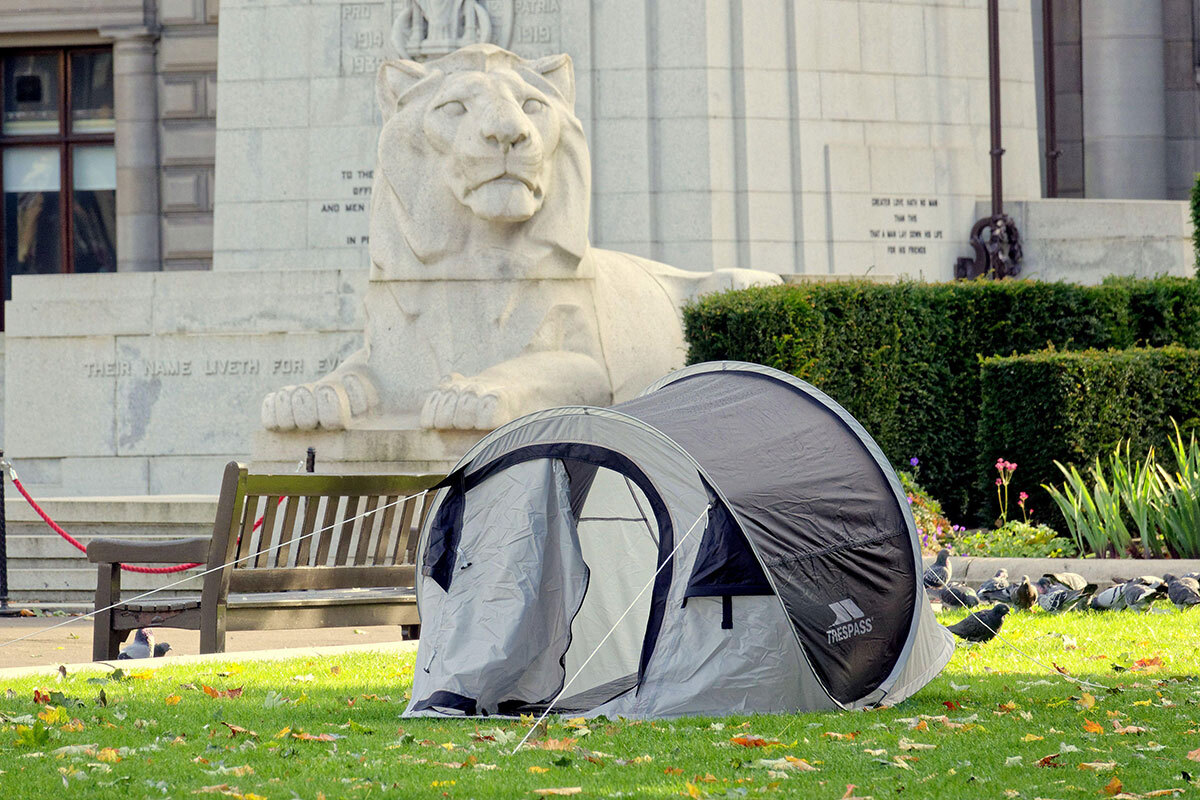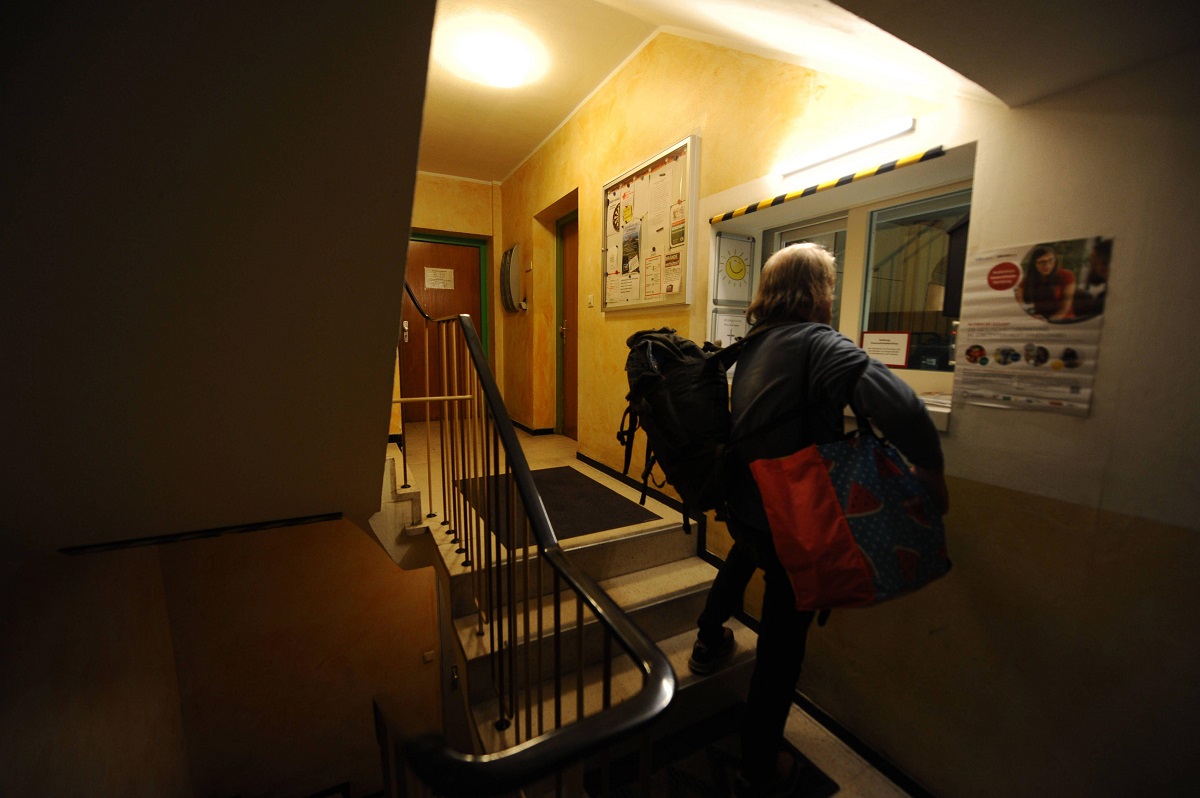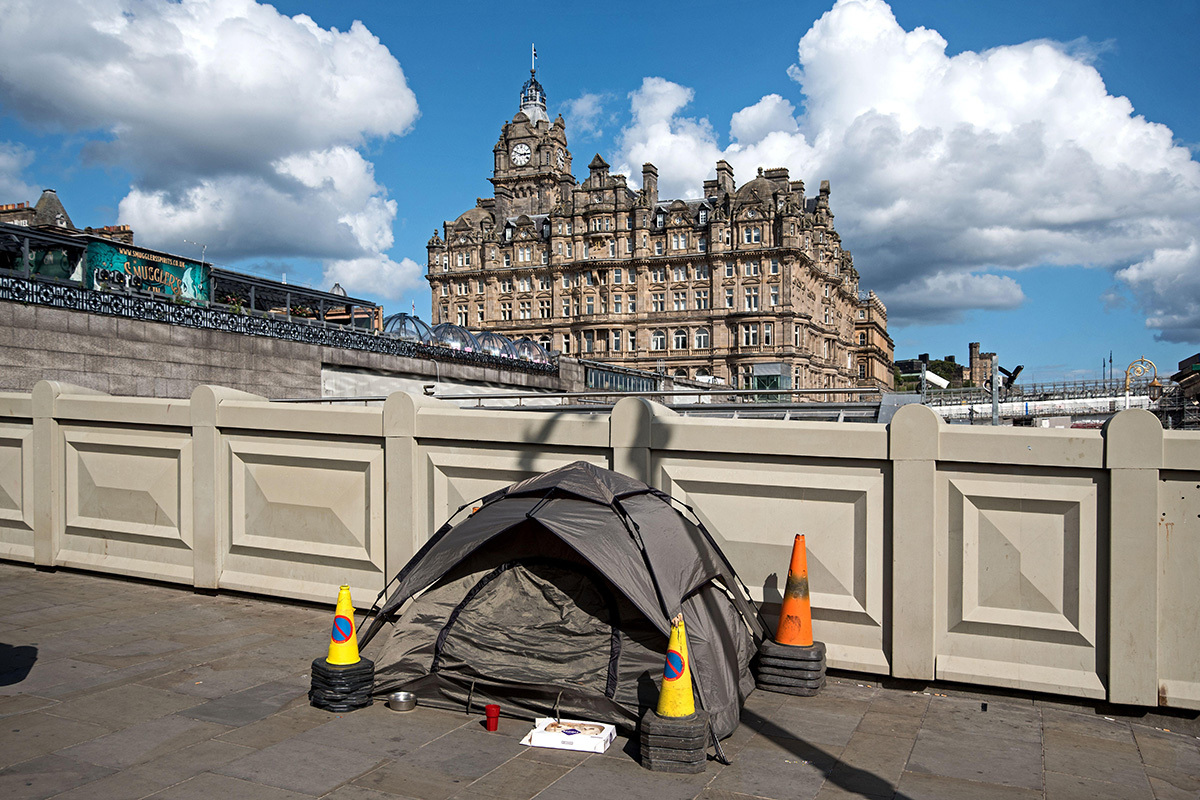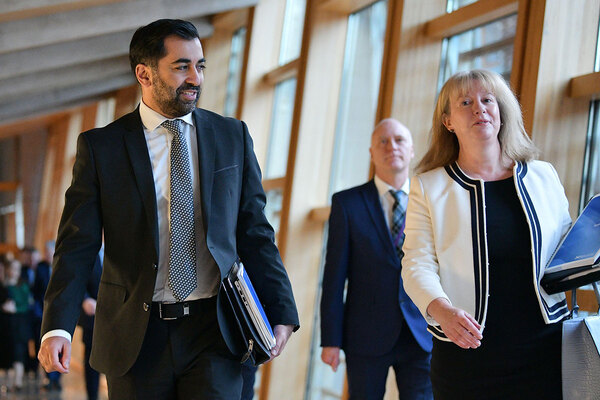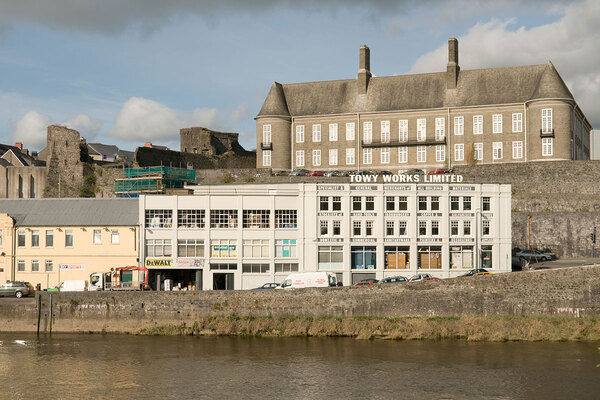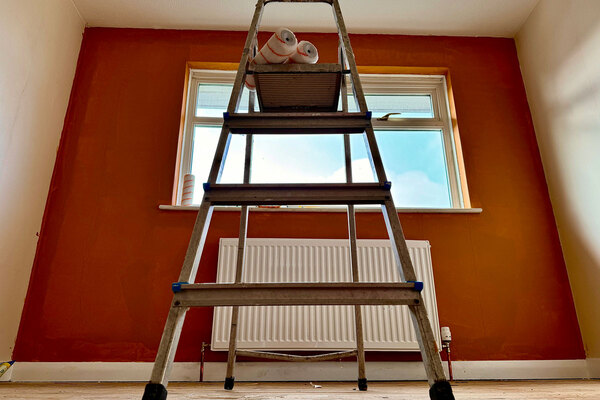You are viewing 1 of your 1 free articles
Rising homelessness in Scotland is forcing councils to break the law ‘on an industrial scale’
Homelessness in Scotland has risen across several benchmarks for the second year in a row, according to the latest government figures, as councils were accused of breaking the law “on an industrial scale” by failing to meet their duties.

Official data released today found that for the sixth-month period between 1 April and 30 September 2023, there were 16,420 households assessed as homeless or threatened with homelessness.
This is an increase of 4%, or 627 households, on the same six-month period in 2022.
The data, compiled by Scotland’s chief statistician, revealed that the number of open homelessness applications increased to 30,724 on 30 September 2023.
This is 10% higher compared to 30 September 2022 and the highest since data collection began in 2002.
New homelessness applications during the period rose to 20,144, an increase of 3% on the same six months in the previous year.
On 30 September 2023, there were 15,625 households and 9,860 children in temporary accommodation. These are both increases of 8%, compared with 14,452 households and 9,125 children the same day in 2022.
The statistics also recorded a substantial increase in councils breaking the law by not offering temporary accommodation.
There were 1,575 instances of households not being offered temporary accommodation during the six-month period, up from 345 in 2022 and a 1,400% increase compared to the previous six months. The vast majority of these – 1,355 – were in Glasgow.
In addition, there were 2,335 breaches of the Unsuitable Accommodation Order between 1 April and 30 September 2023 – a 19% increase compared to the previous six months. The order states that local authorities can only use B&B-type accommodation for any homeless person for a maximum of seven days.
There were 2,185 households made homeless from a private rented tenancy, accounting for 13% of the total, which has decreased from 3,010, or 19% of the total in 2022.
This is likely due to cost of living legislation introduced in October 2022 to protect renters, the statistician said. The emergency legislation, which began as a rent freeze and eviction ban on both the private and social rented sectors, was replaced with a rent cap.
Meanwhile, the Scottish government has outlined proposals for long-term rent controls in the private sector following the end of the emergency legislation on 31 March.
The proportion of households who secured settled accommodation having been assessed as unintentionally homeless was 82%, compared to 84% in 2022.
There were 20,144 applications for homelessness assistance, an increase of 3% compared with the same six-month period in 2022.
There were 1,408 applications that reported a household member experiencing rough sleeping in the three months before the application was made, and 888 the night before. These are increases compared to the same period in 2022.
Scottish housing minister Paul McLennan said the figures were “sobering”.
He added that the challenge of tackling homelessness had been made worse by the UK government’s Local Housing Allowance (LHA) freeze, cuts to the Scottish government’s budget and the bedroom tax.
Mr McLennan said Scotland “continues to have the strongest rights anywhere in the UK for anyone who becomes homeless”, but “we are determined to ensure no one need become homeless in the first place and ensure people can stay in their homes”.
He said the Scottish government had made £30.5m available in 2024-25 for councils to help tackle homelessness, as well as £90.5m to spend on discretionary housing payments. £100m is also going towards a multiyear Ending Homelessness Together fund.
However, Scottish ministers’ claims they were making progress towards ending homelessness were criticised in parliament as “an attempt to gaslight the Scottish public” by charity Shelter Scotland.
Alison Watson, director of Shelter Scotland, said: “The Scottish government can’t claim to be determined to fight poverty while presiding over record homelessness, repeatedly deprioritising housing in its spending choices, and ploughing ahead with a strategy which today’s figures once again clearly show isn’t working.
“Local authorities are breaking the law on an industrial scale every day, and yet there’s no new plans, no new money and no new leadership to meet the scale of the emergency.”
This is because councils are failing to meet their homelessness duties due to a shortage of permanent accommodation and tough rapid rehousing rules.
Ms Watson added: “People in Scotland are being denied their housing rights as a matter of course... It’s hard to imagine any other area of the law where the Scottish government would tolerate such flagrant and frequent law breaking”.
On Tuesday 27 February, MSPs will vote to approve Scotland’s Budget for 2024-25, which allocated £556m to the country’s Affordable Housing Supply Programme for 2024-25 – a £196m cut from what was handed out in 2023-24.
“Anyone who backed that Budget can’t expect to be taken seriously in the future when they claim they’re fighting homelessness,” said Ms Watson.
Ashley Campbell, policy and practice manager at CIH Scotland, said the latest homelessness figures were “deeply concerning”.
“We have a government that has set out world-class ambitions to end homelessness in Scotland, yet we are seeing more households and children in temporary accommodation than ever before and no sign of the urgent action needed to reverse the trend,” she added.
Ms Campbell said it was “encouraging” to see a reduction in the number of households becoming homeless from the private rented sector, adding that “this is something we hope the sector can build on”.
Last month, an Inside Housing investigation found that Scottish councils spent over £160m on temporary accommodation in the last financial year, a rise of 50% in only three years.
Maureen Chalmers, community well-being spokesperson at the Convention of Scottish Local Authorities, said: “I am really concerned about the increasing number of people who are homeless across Scotland.
“While councils work hard in partnership with the Scottish government and those in the third sector, our ability to offer support and accommodation is being overtaken by need.
“More affordable housing is required, if we are to avoid more local authorities joining the three who have already declared local housing emergencies.”
Sign up for our Scotland newsletter
Already have an account? Click here to manage your newsletters
